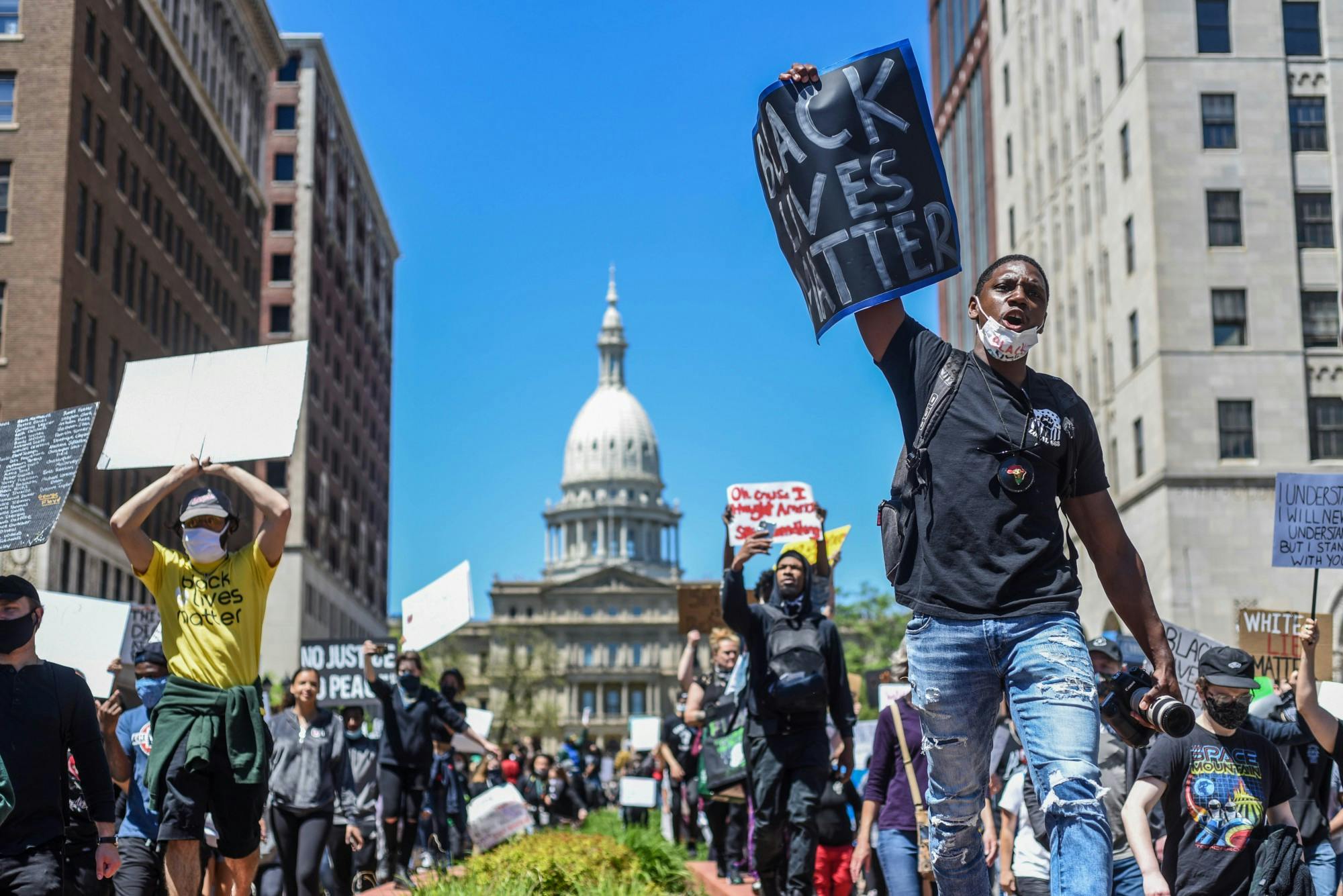Lansing Mayor Andy Schor and the Lansing Police Department released new guidelines for traffic stops July 1 after discussion with Police Chief Daryl Green and Lansing City Council Member Brian T. Jackson.
“Today, I was joined by Police Chief Daryl Green and supported by Councilman Brian T. Jackson to announce new guidelines that Lansing police officers must follow to no longer pull people over for minor traffic offenses,” Schor said. “I’ve heard concerns from those in the Black community and people in other communities of color about being pulled over for traffic stops and possible racial bias as a result of these traffic stops. We have listened to the residents, and now are taking action.”
Schor unveiled the guidelines to the public and Green passed them on to the Lansing Police Department in an internal memorandum.
Schor says that the guidelines are a direct reflection of feedback from Black and other communities of color, who had expressed concerns of racial bias during, or as a result of these, traffic stops.
In the internal memorandum released to LPD, from Green, he explained that the philosophy behind the new guidelines stem from recent research that demonstrates that routine traffic stops, and general traffic enforcement can result in contrasting interactions for “some members of our community.”
Green said that the LPD uses a constitutional policing model and actively works to eliminate bias. The objective of implementing the guidelines are to improve the safety and quality of life for everyone.
As well as the new guidelines, Green reiterated that the LPD does not have ticket quotas and any sworn officer must have both lawful reason and good judgement when making a traffic stop.
"The intent of the following traffic stop guidelines are consistent with our overall constitutional policing model that is focused on protecting the individual constitutional rights of our citizens while eliminating any aspect, inferred or otherwise, of bias-based traffic policing practices,” Green said.
Primary violations, which are labeled as “Public Safety Violations,” remain of strong interest and encouraged action by LPD. These safety stops include failure to wear seat belt/child restraints, inoperable headlight/s after dusk hours, no brake lights, expired license plate, speeding, careless and reckless driving, violation of traffic control devices, impaired driving and other unsafe and dangerous driving situations.
Beginning on July 2, the order will prevent officers from initiating a traffic stop solely for a secondary violation and are allowed to provide written or verbal warnings for defective equipment violations.
Secondary traffic violations include those in which don’t have a relationship with traffic safety, such as defective equipment, including cracked windshields, loud exhaust, inoperable license plate lamp, cracked tail lights, dangling ornaments, and window treatment.
Green also states that indiscriminate use of the Law Enforcement Information Network (LEIN) to scan license plates without an articulable and non-bias public safety reason is prohibited.
Violations of this order can result in educational-based disciplinary action, remedial training or, if the circumstances of the violation are exceptional, severe discipline including criminal investigation.
The Office of Internal Affairs and Chief of Police will conduct ongoing and quarterly reviews of the data collected from traffic stops and make sure it is released to the public.
Greens said that after 60 days the order for the guidelines will be examined and adjusted if needed.
“After 60-days, the Chief of Police and Police Board of Commissioners will examine data concerning the following guidelines and update LPD Policy 600.2 (Management Analysis of Traffic Stops) with any related or identified best practices and/or additions, deletions or corrections to this Order," Green said.
Schor said in the press release that Lansing will be one of the first cities in Michigan to implement the change and that it is a major step in the insurance of fair and impartial policing.
“This change is based on input and feedback from residents about what they want from their police department,” Schor said. “Lansing will be one of the first communities in the state of Michigan to take this action. It is a major step in ensuring that we have fair and impartial policing here in Lansing.”
Support student media!
Please consider donating to The State News and help fund the future of journalism.
Discussion
Share and discuss “Lansing implements new traffic stop guidelines in direct response to community concern ” on social media.








